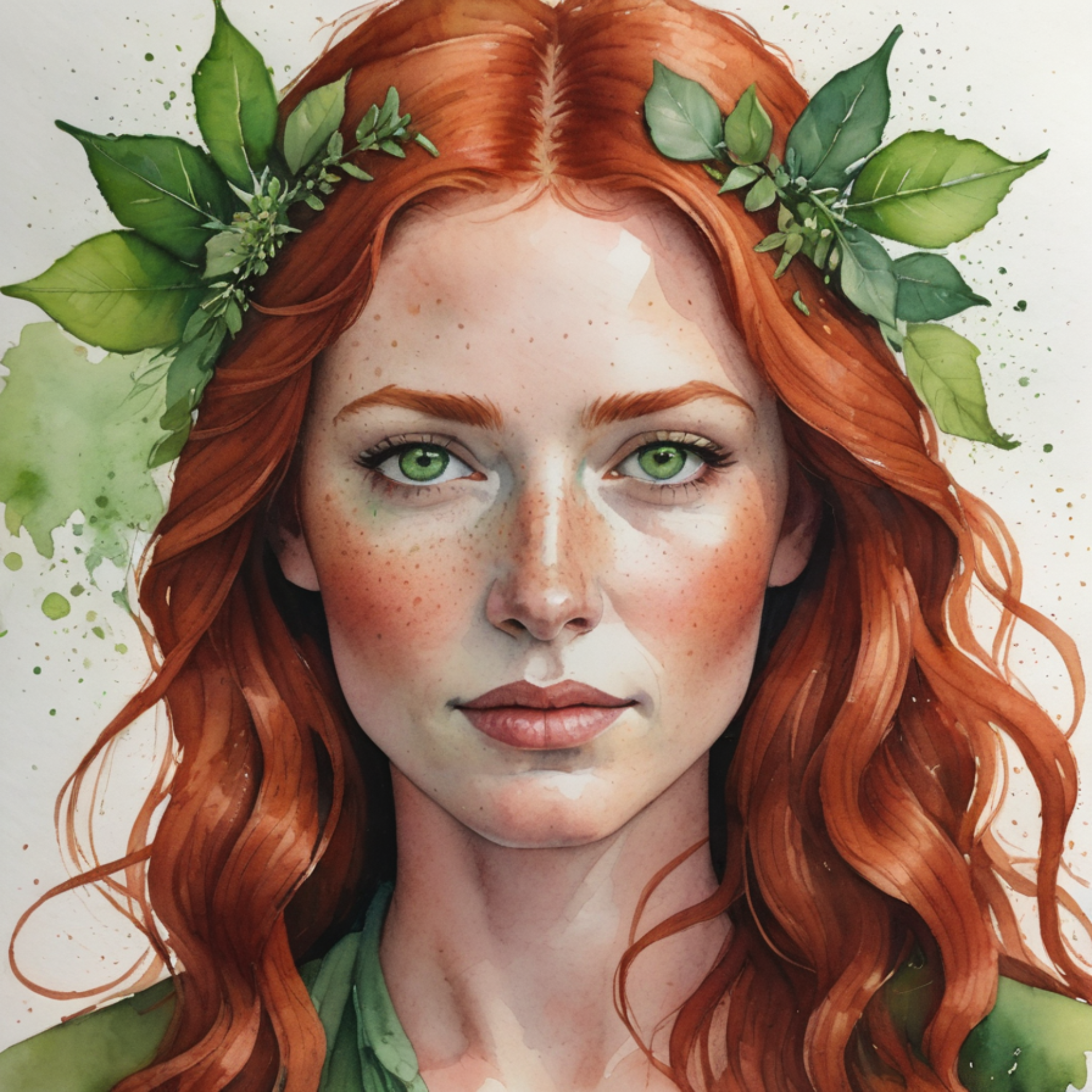Stuteg
(a.k.a. Verdant Shepherd)
Stuteg, the Verdant Shepherd, is the neutral good deity of life, healing, and natural flourishing. Revered in rural communities and druidic circles alike, Stuteg embodies the quiet strength of the earth—the patient rhythms of seed and season, the resilience of the herd, and the unseen alchemy of root and bloom. They appear in varied forms—sometimes a bearded farmer, other times a matronly healer, or an androgynous steward of fields—all sharing the same radiant calm and earthy wisdom. Regardless of appearance, Stuteg always carries symbols of nurturing: a staff carved from living wood, a garland of herbs, or hands calloused by honest work.
Stuteg’s domains include plant care, animal husbandry, alchemy (excluding poison), and the preservation of all natural life. Their followers, often known as Wardens of the Greenlight, serve as rural healers, midwives, herbalists, and shepherds. Temples are rare, but groves, spring-fed wells, and farmstead altars serve as places of quiet devotion. Magic granted by Stuteg leans toward restoration, fertility, protection from disease, and the repelling of corruption. It is said that their blessing can calm a dying animal, turn spoiled seed fertile again, or cleanse a blighted grove with a whispered prayer.
Undeath is anathema to Stuteg, who sees it as a perversion of the life-death cycle. Their clergy are sworn to destroy necromantic forces, not out of vengeance, but with solemn compassion—laying disturbed spirits to rest and returning the unnatural to the soil. Stuteg teaches that all things have a time, and to delay death is a mistake—but to preserve, nourish, and heal while life remains is the greatest good. Festivals honoring Stuteg are quiet affairs—feasts of the harvest, communal plantings, or the blessing of newborn livestock—celebrations of life's endurance, not its conquest.
Stuteg’s domains include plant care, animal husbandry, alchemy (excluding poison), and the preservation of all natural life. Their followers, often known as Wardens of the Greenlight, serve as rural healers, midwives, herbalists, and shepherds. Temples are rare, but groves, spring-fed wells, and farmstead altars serve as places of quiet devotion. Magic granted by Stuteg leans toward restoration, fertility, protection from disease, and the repelling of corruption. It is said that their blessing can calm a dying animal, turn spoiled seed fertile again, or cleanse a blighted grove with a whispered prayer.
Undeath is anathema to Stuteg, who sees it as a perversion of the life-death cycle. Their clergy are sworn to destroy necromantic forces, not out of vengeance, but with solemn compassion—laying disturbed spirits to rest and returning the unnatural to the soil. Stuteg teaches that all things have a time, and to delay death is a mistake—but to preserve, nourish, and heal while life remains is the greatest good. Festivals honoring Stuteg are quiet affairs—feasts of the harvest, communal plantings, or the blessing of newborn livestock—celebrations of life's endurance, not its conquest.
Divine Domains
Major Access: Healing, Plant, Animal, Wards, Creation
Minor Access: Protection, Divination, Elemental (Earth, Water)
Forbidden: Necromantic, Combat
Minor Access: Protection, Divination, Elemental (Earth, Water)
Forbidden: Necromantic, Combat
Deity Specific Spells
Stuteg’s TouchDivine Symbols & Sigils
The Loop and Blossom: A woven loop of wheat stalks and vine, forming a loose circle or spiral, with a single blooming flower (often a white poppy or golden clover) emerging from the center.
- Materials: Often made from dried plant matter or living vines; ornate versions include green gold, amber, or sunstone inlays.
- Practical Version: A charm worn as a brooch or necklace; traveling priests may even carry a shepherd’s crook engraved with the spiral as a portable holy symbol.
- Symbolic Meanings:
- The Spiral: Represents the cycle of life, growth, decay, and rebirth.
- The Flower: A symbol of vitality, renewal, and divine favor.
- Wheat & Vine: Stuteg’s dominion over sustenance and natural harmony.
Divine Colors
Gold and Green
Divine Classification
Greater Power
Religions
Alignment
Neutral Good
Church/Cult
Children
Pronouns
Traditional based upon current presentation.
Gender
Fluid
Presentation
Fluid
Eyes
Green





Comments